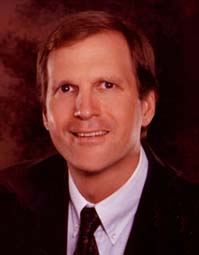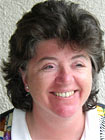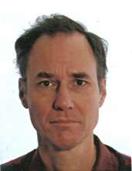Does anyone here speak Neanderthal? Thread poster: Edward Potter
|
|---|
Edward Potter 
Spain
Local time: 20:28
Member (2003)
Spanish to English
+ ...
Neanderthals speak again after 30,000 years
Wed Apr 16, 12:11 PM ET
LONDON (Reuters) - Neanderthals have spoken out for the first time in 30,000 years, with the help of scientists who have simulated their voices using fossil evidence and a computer synthesizer.
Robert McCarthy, an anthropologist at Florida Atlantic University in Boca Raton, used new reconstructions of Neanderthal vocal tracts to work out how they would have sounded, NewScientist.com rep... See more Neanderthals speak again after 30,000 years
Wed Apr 16, 12:11 PM ET
LONDON (Reuters) - Neanderthals have spoken out for the first time in 30,000 years, with the help of scientists who have simulated their voices using fossil evidence and a computer synthesizer.
Robert McCarthy, an anthropologist at Florida Atlantic University in Boca Raton, used new reconstructions of Neanderthal vocal tracts to work out how they would have sounded, NewScientist.com reported on Wednesday.
The conclusion is that Neanderthals spoke, but sounded rather different to us. Specifically, the ancient humans' lacked the "quantal vowel" sounds that underlie modern speech and which provide cues that help speakers understand one another.
By modeling the sounds that a Neanderthal larynx would have made, McCarthy's team engineered the sound of a Neanderthal saying "e." (To listen to McCarthy's simulation of a Neanderthal voice, visit: http://media.newscientist.com/data/images/ns/av/dn13672A1.wav
In contrast to a modern human "e," the Neanderthal version lacks a quantal hallmark, which helps a listener distinguish the word "beat" from "bit," for instance. (To listen to a simulation of the modern human voice, visit: http://media.newscientist.com/data/images/ns/av/dn13672A2.wav
McCarthy, who based his reconstructions on 50,000-year-old fossils from France, aims eventually to simulate an entire Neanderthal sentence.
Neanderthals were a dead-end offshoot of the human line who inhabited Europe and parts of west and central Asia. Researchers believe they survived in Europe until the arrival of modern humans about 30,000 years ago.
(Reporting by Ben Hirschler; Editing by Matthew Jones) ▲ Collapse
| | | | | really interesting | Apr 26, 2008 |
Hi Edward,
Thank you for a very interesting post
Have a great weekend
S
| | | | casey 
United States
Local time: 14:28
Member
Japanese to English
| From a fossil? | Apr 26, 2008 |
I'm with Washington University anthropologist Erik Trinkaus who disputes the finding’s significance. He says, “Ultimately what is important is not the anatomy of the mouth but the neuronal control of it,” referencing Neanderthals’ large brains.
I find it hard to believe that a parrot could produce vowel sounds better than a Neanderthal. This seems like junk science to me.
| | | | Suzanne Blangsted (X) 
Local time: 11:28
Danish to English
+ ...
| Neanderthal - indeed | Apr 26, 2008 |
Indeed, it is an interesting article with interesting references, but I am with Casey. It seems to be an attempt at gain to fame by McCarthy.
| | |
|
|
|
liz askew 
United Kingdom
Local time: 19:28
Member (2007)
French to English
+ ...
| Teenagers speak Neanderthal.. | Apr 26, 2008 |
Sorry for the flippancy, but I just couldn't resist it! As a mother of a 15 year old boy, I feel qualified to put in my two pence worth; my 14 year old girl doesn't seem to have "mastered" it yet though:-)
Liz Askew
[Edited at 2008-04-26 15:53]
| | | | Terry Gilman 
Germany
Local time: 20:28
Member (2003)
German to English
+ ...
| Really appreciate the post | Apr 26, 2008 |
It's always hard to know whether to post or not, but as an immigrant to the Neanderthal area (Düsseldorf), I'm fascinated by and appreciate the assertion, even it's disputed. The museum is pretty interesting, no matter what one thinks.
How could this group have lived partly in parallel with Cro Magnon, yet not have left a DNA trace? That seems strange to me.
[Edited at 2008-04-26 22:19]
I meant to recommend Robin Dunbar's "Grooming, Gossip, and the Evolut... See more It's always hard to know whether to post or not, but as an immigrant to the Neanderthal area (Düsseldorf), I'm fascinated by and appreciate the assertion, even it's disputed. The museum is pretty interesting, no matter what one thinks.
How could this group have lived partly in parallel with Cro Magnon, yet not have left a DNA trace? That seems strange to me.
[Edited at 2008-04-26 22:19]
I meant to recommend Robin Dunbar's "Grooming, Gossip, and the Evolution of Language." It's not about Neanderthals, but for readers interested in prehistoric stuff, an interesting read. Dunbar suggests that song may have preceded speech and that groups larger than about 150 individuals have difficulty communicating/remaining coherent as a "group," which I imagine some of us have observed at the office.
http://www.amazon.com/Grooming-Gossip-Evolution-Language-Dunbar/dp/0674363345/ref=sr_1_1?ie=UTF8&s=books&qid=1209313683&sr=1-1
[Edited at 2008-04-27 16:40] ▲ Collapse
| | | | | it seems a little shaky. | May 9, 2008 |
You could possibly create usable models based entirely on shapes and orientations
of the speech associated fossils. It seems as though a lot of important information
would be missing, but I don't really know much about the subject.
The big problem is verifiability. If you don't have a speaking Neanderthal with whom
to compare your model's results, it's anyone's guess whether or not the model is
any good. Maybe the researchers should create a corresponding... See more You could possibly create usable models based entirely on shapes and orientations
of the speech associated fossils. It seems as though a lot of important information
would be missing, but I don't really know much about the subject.
The big problem is verifiability. If you don't have a speaking Neanderthal with whom
to compare your model's results, it's anyone's guess whether or not the model is
any good. Maybe the researchers should create a corresponding model of a modern
human's speech organs, then listen to whether it sounds anything like a modern
human's speech (or maybe they've already done this).
Last year I almost rented a room within walking distance of the Neanderthal Museum.
It really was a nice room, and I really wanted to be able tell people that I was
a Neanderthaler, but the room was too far away from Düsseldorf for my liking.
I did end up living within easy driving distance of the valley though. ▲ Collapse
| | | | To report site rules violations or get help, contact a site moderator: You can also contact site staff by submitting a support request » Does anyone here speak Neanderthal? | Protemos translation business management system | Create your account in minutes, and start working! 3-month trial for agencies, and free for freelancers!
The system lets you keep client/vendor database, with contacts and rates, manage projects and assign jobs to vendors, issue invoices, track payments, store and manage project files, generate business reports on turnover profit per client/manager etc.
More info » |
| | Trados Studio 2022 Freelance | The leading translation software used by over 270,000 translators.
Designed with your feedback in mind, Trados Studio 2022 delivers an unrivalled, powerful desktop
and cloud solution, empowering you to work in the most efficient and cost-effective way.
More info » |
|
| | | | X Sign in to your ProZ.com account... | | | | | |









